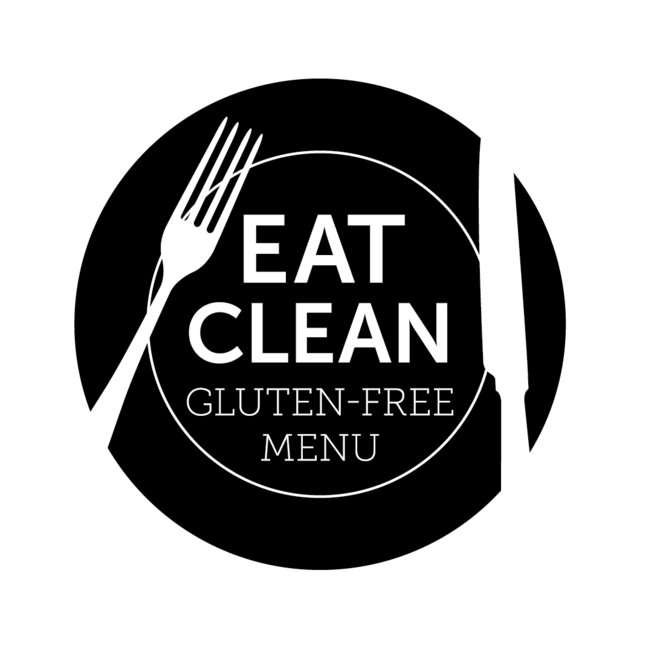Weight Loss- Abs Diet and Cholesterol Levels
Cholesterol is a soft, waxy substance found among the lipids (fats) in the bloodstream and in all your body's cells. For all the bad press it gets, the fact is that you need cholesterol, because your body uses it to form cell membranes, create hormones, and perform several other crucial maintenance operations. But a high level of cholesterol in the blood—hypercholesterolemiais—a major risk factor for coronary heart disease, which leads to heart attack.
You get cholesterol in two ways. The body—mainly the liver—produces varying amounts, usually about 1,000 milligrams a day. But when you consume foods high in saturated fats—particularly trans fats—your body goes cholesterol crazy, pumping out more than you could ever use. (Some foods also contain cholesterol, especially egg yolks, meat, poultry, fish, seafood, and whole-milk dairy products. But the majority of it, and the stuff I want you to focus on, is made by your own body.)
Some of the excess cholesterol in your bloodstream is removed from the body through the liver. But some of it winds up exactly where you don't want it—along the walls of your arteries, where it combines with other substances to form plaque. Plaque is wack for several reasons: First, it raises blood pressure by making your heart work harder to get blood through your suddenly narrower vessels, which can eventually wear out your ticker. Second, plaque can break off its little perch and tumble through your bloodstream, eventually forming a clot that can lead to stroke, paralysis, death, and other annoyances.
Inside your body, a war is raging right now between two factions of specialized sherpas called lipoproteins that are moving cholesterol around your insides according to their own specialized agendas. There are several kinds, but the ones to focus on are the Jekyll and Hyde of health, HDL (high-density or "helpful" lipoprotein) and LDL (low-density or "lazy" lipoprotein) cholesterol.
The good guy: HDL cholesterol. About one-fourth to one-third of blood cholesterol is carried by helpful HDL. HDL wants to help you out by picking up cholesterol and getting it the hell out of your bloodstream by carrying it back to the liver, where it's passed from the body. That's good. Some experts believe that HDL removes excess cholesterol from plaques and thus slows their growth. That's really good. A high HDL level seems to protect against heart attack. The opposite is also true: A low HDL level (less than
40 milligrams per deciliter (mg/dL) indicates a greater risk. A low HDL cholesterol level may also raise stroke risk.
The bad guy: LDL cholesterol. Lazy LDL has no interest at all in helping you out. LDL just wants to stick cholesterol in the most convenient place it can find, meaning your arteries. LDL doesn't care that too much cholesterol lining your arteries causes a buildup of plaque, a condition known as atherosclerosis. A high level of LDL cholesterol (160 mg/dL and above) reflects an increased risk of heart disease. Lower levels of LDL cholesterol reflect a lower risk of heart disease.
Simply put, HDL is trying to come to your aid, but LDL is just sitting there, laughing at you. (I also heard it said something bad ‘bout your momma.) So whose side are you on? If you want to give HDL a hand, start stocking up on the Abs Diet Powerfoods, and follow the guidelines of the Abs Diet Workout. Here are some more quick ideas on beating the bad guy for good.
18 Ways to Slim Down and Control Cholesterol
1. Butt out. Tobacco smoking is one of the six major risk factors of heart disease that you can change or treat. Smoking lowers HDL (good) cholesterol levels.
2. Drink up. In some studies, moderate use of alcohol is linked with higher HDL (good) cholesterol levels. But take it easy there, Dino. People who consume moderate amounts of alcohol (an average of one to two drinks per day for men and one drink per day for women) have a lower risk of heart disease, but increased consumption of alcohol can bring other health dangers, such as alcoholism, high blood pressure, obesity, and cancer.
3. Johnny B good. A B vitamin called niacin reduces LDL (bad) cholesterol at the same time it raises beneficial HDL. In fact, niacin can be more effective at treating these things than popular cholesterol-busting drugs, which tend to act more generally on total cholesterol and gross LDL. (Be careful, though. While the niacin you get from foods and over-the-counter vitamins is fine, super-high doses of niacin can have serious side effects and should be taken only under a doctor's supervision.)
4. Tea it up. Three recent studies confirm that drinking green tea can help lower your cholesterol level and reduce your risk of developing cancer. In a 12-week trial of 240 men and women, researchers at Vanderbilt University found that drinking the equivalent of 7 cups of green tea a day can help lower LDL (bad) cholesterol levels by 16 percent. Seven cups a day is a lot of tea, but even 1 or 2 cups a day could have a beneficial impact. Meanwhile, researchers at the University of Rochester recently determined that green tea extract can help prevent the growth of cancer cells, and Medical College of Ohio researchers found that a compound called EGCG in green tea may help slow or stop the progression of bladder cancer.
5. Go for the grapefruit. If you want to make one simple dietary change for better health, the best thing you can do is eat a single white or ruby grapefruit every day. Grapefruit is gaining ground as a power food. New research shows that it can fight heart disease and cancer, trigger your body to lose weight, and even help you get a better night’s sleep. A grapefruit a day can lower your total cholesterol and LDL (bad) cholesterol levels by 8 and 11 percent, respectively.
6. Cram in the cranberry. Researchers at the University of Scranton in Pennsylvania found that men who drank three glasses of cranberry juice daily raised their HDL (good) cholesterol levels by 10 percent, which in turn lowered their risk of heart disease by 40 percent. Plant compounds called polyphenols are believed to be responsible for the effect. (Note: Cranberry juice often comes diluted, so make sure the label says that it contains at least 27 percent cranberry juice.)
7. Spread some on. Instead of butter or margarine, try Benecol spread. It contains stanol ester, a plant substance that inhibits cholesterol absorption. A study at the Mayo Clinic found that people eating 41⁄2 tablespoons of Benecol daily lowered their LDL (bad) cholesterol by 14 percent in 8 weeks. When they stopped using it, their LDL returned to previous levels. Benecol can also be used for cooking.
8. Gain with grains and beans. Researchers at St. Michael’s Hospital in Toronto had people add several servings of foods like whole grains, nuts, and beans to their diets each day. One month later, the test subjects’ LDL (bad) cholesterol levels were nearly 30 percent lower than when the trial began. In another study, this one at Tulane University, researchers found that people who ate four or more servings a week had a 22 percent lower risk of developing heart disease (and 75 percent fewer camping companions) than less-than-once-a-week bean eaters.
9. Don’t let your tank hit empty. A study in the British Medical Journal found that people who eat six or more small meals a day have 5 percent lower cholesterol levels than those who eat one or two large meals. That’s enough to shrink your risk of heart disease by 10 to 20 percent.
10. Refrain from fries. In a study published in the New England Journal of Medicine, the exercise and nutritional habits of 80,000 women were recorded for 14 years. The researchers found that the most important correlate of heart disease was the women’s dietary intake of foods containing trans fatty acids, mutated forms of fat that lower HDL (good)and increase LDL (bad) cholesterol. Some of the worst offenders are french fries.
11. Sow your oats. In a University of Connecticut study, men with high cholesterol who ate oat bran cookies daily for 8 weeks dropped their levels of LDL cholesterol by more than 20 percent. So eat more oat bran fiber, such as oatmeal or Cheerios. A study in the American Journal of Clinical Nutrition reports that two servings of whole-grain cereal (Cheerios count) a day can reduce a man’s risk of dying of heart disease by nearly 20 percent.
12. Rise and dine. In a study of 3,900 people, Harvard researchers found that men who ate breakfast every day were 44 percent less likely to be overweight and 41 percent less likely to develop insulin resistance, both risk factors for heart disease.
13. Fortify with folic acid. A study published in the British Medical Journal found that people who consume the recommended amount of folic acid each day have a 16 percent lower risk of heart disease than those whose diets are lacking in this B vitamin. Good sources of folic acid include asparagus, broccoli, and fortified cereal.
14. Order a chef’s salad. Leafy greens and egg yolks are both good sources of lutein, a phytochemical that carries heart disease–fighting antioxidants to your cells and tissues.
15. Be a sponge. Loma Linda University researchers found that drinking five or more 8-ounce glasses of water a day could help lower your risk of heart disease by up to 60 percent—exactly the same drop you get from stopping smoking, lowering your LDL (bad) cholesterol numbers, exercising, or losing a little weight.
16. Give yourself bad breath. In addition to lowering cholesterol and helping to fight off infection, eating garlic may help limit damage to your heart after a heart attack or heart surgery. Researchers in India found that animals who were fed garlic regularly had more heart-protecting antioxidants in their blood than animals that weren’t.
17. Crank up the chromium. According to new research from Harvard, men with low levels of chromium in their systems are significantly more likely to develop heart problems. You need between 200 and 400 micrograms of chromium per day—more than you’re likely to get from your regular diet. Look for a supplement labeled chromium picolinate; it’s the most easily absorbed by the body.
18. Snack on nuts. Harvard researchers found that men who replaced 127 calories of carbohydrates—that’s about 14 Baked Lay’s potato chips—with 1 ounce of nuts decreased their risk of heart disease by 30 percent.
-
Kids Whining and Healthy Eating
Your little angels can turn into head-spinning monsters when they crav
-
Weight Loss: Kids Healthy Eating Plans
It may be tough to tell junior that hes packing on the pounds. Odds ar
-
Weight Loss: Abs Diet Circuit Exercises
Muscles get bigger and stronger when theyre challenged with new exerci
-
Have a Threesome, Shed Pounds!
If you’re in the market for dropping some weight, you may want to grab
-
Abs Diet Core Exercise: T Pushups
T PUSHUP With hexagonal dumbbells placed shoulder-width apart on the f
-
Your Recipe For Weight Loss Success: Passion: MensHealth.com
Robert Blair nearly died on the ski slopes.
- DON'T MISS
- Shed Your Spare Tire
- Are You Accidentally on Drugs?
- 7 SIMPLE Ways to Cut Calories (without trying!)
- Flatten Your Belly:
- Burn Fat Faster with Vitamin D:
- Abs Diet Smoothie Recipes: Coco Poof
- Abs Diet: Pesto Pasta Recipe
- 5 Ways to Lose Weight Overnight
- Abs Diet: Weight-Free Total-Body Workout
- 5 Reasons to be Thankful for Pistachios




